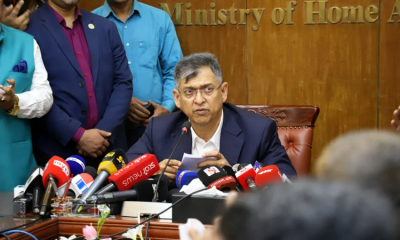Power outages are becoming more frequent as electricity generation struggles to meet the surging demand driven by rising temperatures.
According to data from the Bangladesh Power Development Board (PDB), the power generation shortfall reached nearly 2,000 megawatts (MW) yesterday, the highest in recent weeks.
This month, the PDB has been generating up to 13,900 MW of electricity daily to meet a peak demand of 16,200 MW, a significant increase from last month, when demand ranged between 14,000 MW and 14,500 MW.
Currently, daytime temperatures in Dhaka hover in the mid-30s Celsius. According to PDB data, regions such as Rajshahi, Rangpur, Cumilla, Mymensingh, and Sylhet have been particularly affected by power outages.
PDB officials attribute the frequent power cuts to insufficient electricity generation by coal-based power plants, which are facing technical difficulties. Gas shortages have also become a common problem.
Power plants with a combined capacity of 10,000 MW are currently idle due to either fuel shortages or maintenance needs: 6,300 MW are offline due to a lack of fuel, and 3,600 MW are down for maintenance.
Fuel shortages have increased the amount of unutilized capacity compared to last month. PDB data shows that gas-fired power plants with a combined capacity of 4,093 MW are offline because of fuel shortages.
The country’s total installed gas-based power generation capacity is 11,428 MW. At least 25 gas-fired power plants have been shut down since May 27, when Cyclone Mocha hit the coastal regions.
The cyclone damaged one of the country’s two floating storage and regasification units (FSRUs), reducing the LNG regasification capacity from 1,100 million cubic feet per day (mmcfd) to 600 mmcfd. Although efforts were made to restart the FSRU, they were unsuccessful.
According to Muhammad Fouzul Kabir Khan, adviser to the Ministry of Power, Energy, and Mineral Resources, operations are now expected to resume by September 15.
The PDB`s largest single power supplier, the 1,496 MW Adani Godda power plant in Jharkhand, India, produces around 1,000 MW of electricity.
Recently, the plant’s management sent letters to the Ministry of Power, Bangladesh Bank, and the chief adviser of the interim government, requesting payment of overdue bills totaling $800 million.
"We must inform you that the Godda plant is struggling to maintain operations due to the costs of coal procurement, debt servicing, and operational expenses," said a PDB official, quoting the letter.
The Matarbari power plant is also operating below capacity due to coal shortages, and one of the two units at Chattogram`s SS power plant is under maintenance.
According to PDB data, about 2,300 MW—roughly one-third of the total coal power capacity of 6,604 MW—remains idle.
PDB officials reported that furnace oil imports have also been affected by the country`s dollar shortage.
According to Bangladesh Bank data, Bangladesh`s gross foreign exchange reserves stood at approximately $20.6 billion as of September 4, enough to cover about four months of import expenses.
The country`s total power generation capacity is 27,086 MW.












-20260224075258.webp)

-20260224065127.webp)


-20260223082704.webp)
-20260223074941.jpeg)
-20260223062301.jpg)















